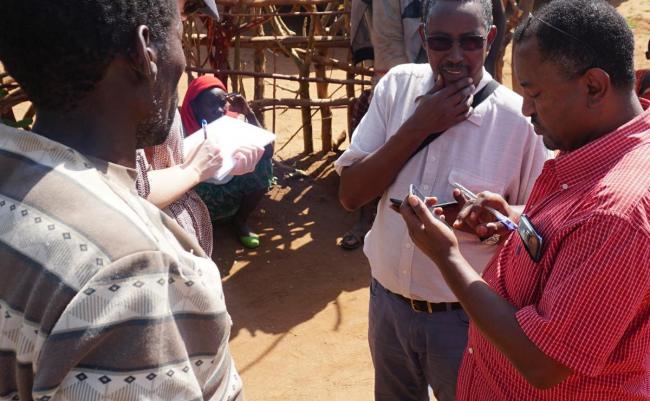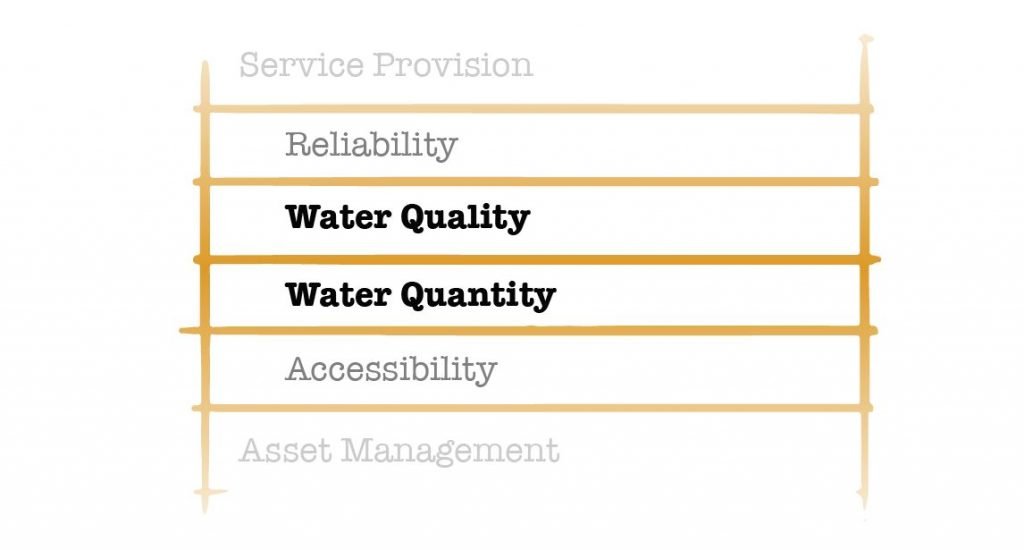Government, donors, and implementers must come together and invest in national and sub-national systems.
This blog was written and published on 21 August 2017 in the IRC WASH Amplify newsletter. It is co-authored by Joseph Pearce and Nicolas Dickinson.

Imagining a national WASH monitoring and evaluation system
In a recent discussion, a National Rural WASH Coordinator outlined his country’s data requirements. They needed to know about the distribution and quality of services, functionality, water quality, who provides the services and how they are managed. They wanted maps showing individual water points that could be clicked on to reveal all the technical details an engineer could hope for. They also needed information to share with Parliament that showed the progress they have made towards achieving the national targets and the new Sustainable Development Goals (SDGs).
This was quite a wish list. There was barely any reliable data on WASH services in rural areas, and it was easy to be ambitious about additions. But what would it look like and what will it cost?

